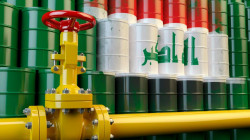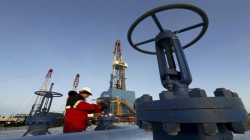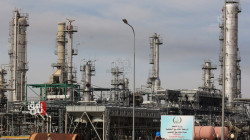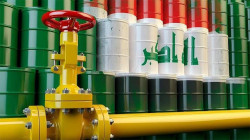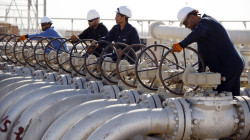The changing landscape of Iraq's energy sector: Balancing East and West
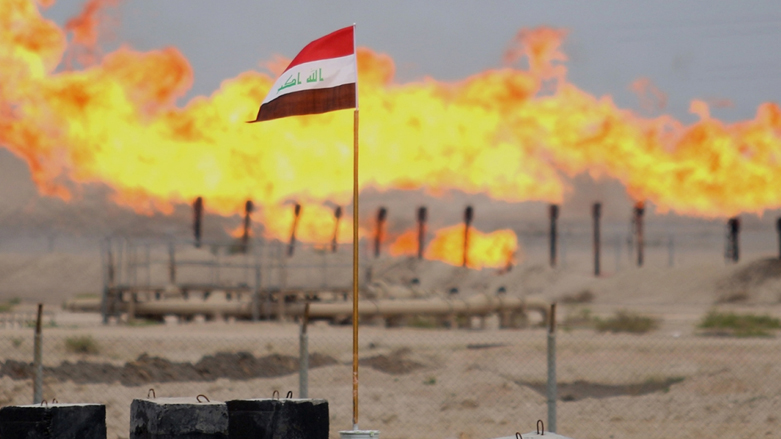
Shafaq News/ Iraq, with the world's fifth-largest oil reserves, is a cornerstone of the global energy market. While its oil sector accounts for over 90% of government revenue, challenges like outdated infrastructure and political instability persist.
To modernize, Iraq is pursuing Western investments to boost efficiency and achieve gas self-sufficiency. Simultaneously, China’s growing presence in its energy sector, fueled by the retreat of Western firms, highlights a shifting dynamic. Iraq now navigates a delicate balance between fostering modernization and managing competing geopolitical influences.
Iraq Seeks Western Investment
Efforts to attract foreign investment and develop new oil fields have been ongoing, with major international oil companies such as ExxonMobil, BP, Shell, and Lukoil playing key roles in Iraq's oil production. These companies have heavily invested in Iraq's oil infrastructure, significantly increasing production capacity and driving economic growth, according to an EIA report.
Former Oil Minister Ihsan Abdul-Jabbar emphasized the transformative role of Western companies, stating to Shafaq News Agency that “true investment that delivers real value to the country, develops society, enhances human capital, and elevates work ethics is what Western companies bring.”
He acknowledged that “while companies from other nationalities perform well, they fall short of meeting these broader requirements. The ministry strives to attract firms capable of fostering a positive social environment, executing projects at the lowest costs, and ensuring the highest returns.”
Iraq is pursuing new investments, particularly from American and European companies, in the associated gas sector to curb gas flaring and boost production. Deputy Oil Minister for Distribution Affairs, Hamid Younis, highlighted Iraq’s commitment to fostering foreign investment, stating that “the Ministry of Oil is actively encouraging international companies to work in Iraq. The current government is implementing plans to collaborate with global firms as part of its efforts to develop the gas sector and achieve progress.”
Iraq aims to achieve self-sufficiency in gas production within five years, actively courting investments while receiving support from the United States to encourage American companies to enter the energy sector. High-level Iraqi delegations have visited the US twice this year, engaging with American officials and private sector representatives, resulting in several agreements to strengthen energy cooperation.
Younis also noted that “US and European companies have been granted permission to work with the Iraqi government, and the US government is devising plans to collaborate with local Iraqi firms.”
According to observers, the US has a dual interest in Iraq, aiming to curb China’s growing influence in the Iraqi energy sector while reducing Iraq’s reliance on electricity and gas imports from Iran.
China Expands Influence in Iraq's Oil Sector
China is openly pursuing control of Iraq’s oil fields, capitalizing on Western companies' withdrawal from certain sites. As major Western companies pull out from Iraq’s energy sector, the country has turned eastward to advance its goals of boosting crude oil and gas production while reducing gas flaring.
For example, Chinese firm PetroChina assumed operations at the West Qurna 1 field following ExxonMobil’s exit in 2023, when the American company sold its 22.7% stake to Iraq’s Basra Oil Company.
China’s success in Iraq’s energy sector is well-established, with the country being Iraq’s largest oil buyer. In the first nine months of 2024, China imported 33.42% of Iraq’s crude exports. While Chinese companies match the efficiency of European firms, they exhibit less concern for high profitability or low-risk ventures—factors often prioritized by Western companies.
Energy expert Hamza Al-Jawahiri told Shafaq News Agency that Chinese companies have “an exceptionally high level of competitiveness compared to global firms.”
Notably, Iraq’s licensing rounds are open to all, and when Chinese firms win contracts, they have every right to operate transparently and competently in the awarded fields.
Al-Jawahiri also noted that “Iraqi laws prevent any single company—whether Chinese or otherwise—from monopolizing oil or gas fields, as local workers must participate, and firms are required to exit developed fields upon the completion of their contracts.”
He added that Chinese companies often win licensing rounds because they are “less profit-driven than their American and European counterparts, content with smaller margins.” This shift has further strengthened China’s foothold, as seen in the latest licensing rounds in May 2024, Chinese companies secured ten out of 13 oil and gas projects. This included both major Chinese firms and smaller ones, signaling a deeper integration of Chinese players into Iraq’s energy landscape.
Economic expert Hilal Al-Taan explained that “Chinese companies, equipped with specialized advisory teams, have cultivated strong relationships with Iraqi communities and employed significant local labor. They operate under more favorable terms, with lower costs and comparable efficiency to global firms.”
Al-Taan further elaborated that “Western firms sold their stakes amid declining global demand projections and Iraq’s reduced production targets. Plans to reach a peak output of nine million barrels per day were scaled back due to market realities and export limitations. Additionally, Iraq’s compliance with OPEC+ production cuts compelled Western companies to sell their shares to Chinese counterparts.”
